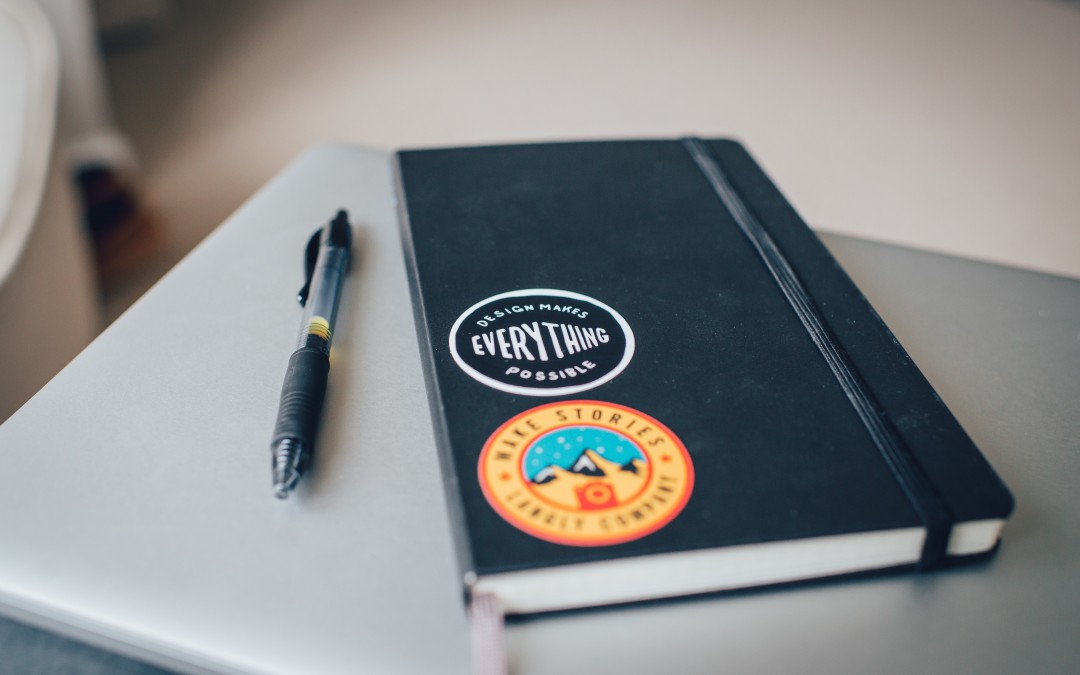
by Rachel Toalson | This Writer Life
Lately I have been immersed in the work of submitting a novel to potential agents. It is a long and tedious process but a process that is necessary if one wants to become traditionally published.
And because it has always been a dream of mine, I have spent the last three weeks sending out queries and writing summaries and putting together proposals.
A couple of days after I sent my first batch of queries, I got my first rejection. I saved it, and all the ones after, because by then they started coming fairly regularly, one or two a day. Some were personal “try me again sometime” notes, others were form letters, but they all said the same thing: “I’m just not the right person to represent this project.”
I could have let that rejection get to me. I did once.
Years ago, before I was even a mother, I finished my first novel. It was a book based on my mother’s story of betrayal and heartache and divorce, and how she climbed her way back out of the dark.
I sent it out to a whole long list of agents and never even got a personal letter back, just a stack of form-letter rejections I tucked away in a file somewhere. Because it was my story, too, I was incredibly close to its outcome—which means I also tucked away that rejection in my heart.
The rejection hurt. It hurt because it felt personal. So I closed up shop. For seven years.
It took me seven whole years to pick up my fiction pen again. I wish I hadn’t wasted so much time. I wish I had tried again. I wish I had shaken the dust off my sandals and kept writing anyway.
Sometimes we can become so attached to what we have written, because it holds a piece of us, that rejection of it can feel like rejection of us. So we feel tied to its outcome. What people say about it. Whether it’s accepted or lauded or ignored.
Does my writing cease to be art just because it does not reach the masses?
No.
No, no, no. A loud, resounding NO.
[Tweet “Writing isn’t art because it reaches the masses. It’s art because we created it.”]
Writers will always face rejection—because writing is subjective.
The books I like to read may not be the same books you like to read. The music I listen to may not even make it on your top 1 billion songs list. The essays I consider beautifully moving may not be the same ones you consider beautifully moving.
We see with different eyes, all of us.
[Tweet “We all see with different eyes. Rejection of our writing by one doesn’t mean rejection by all.”]
Just because a handful of agents don’t think they can “get behind” my project “passionately enough to give it proper representation” doesn’t mean my project isn’t good. I know it’s good. I know it could find an audience. I know it could hold its own in the literary world.
It’s just that these things—stories, essays, books—are so subjective.
But there is something I know surely today that I didn’t quite know all those years ago: I don’t write to get published or gain recognition or to be revered in the world of literature.
I write because it’s what I was made to do.
[Tweet “I don’t write to be revered. I write because I was made to write.”]
Even if I never, ever get a word of my stories published, even if no one ever sees the value between my lines, I will still create. And that means, this time around, rejection will not have the final word. It will not steal my fiction pen for another seven years.
I will write because I am a writer. I will write in spite of rejection. Because of rejection.
Because I can’t not write.
It’s what I was made to do. It’s how I breathe. It’s how I learn to live and move and be.
And because I know this, because you know this, rejection will not clamp its chains around us. It will not hold us down. It will not bind us to a weaker pen or crumpled up paper or a story we never finish.
It will propel us to create more and better and even lovelier than before.
3 Truths of Rejection
1. It’s not a commentary on our worth.
We can’t confuse what we do with who we are. If we do, we’ll be crushed by rejection. Just because we receive a rejection doesn’t mean we are not good at what we do. It doesn’t mean we’ll never be anything but rejected. It doesn’t mean we’re no longer who we were when we woke up this morning. If anything, we should celebrate when we collect rejection—because it’s a road map to our perseverance.
2. It’s a necessary part of the process.
Let’s think about this for a minute. No one is born a masterful writer. It takes hours and hours (research says 10,000 hours) of the right kind of practice. But if we only wait until we’re a masterful writer to get our work out there, how does that serve our ends? Sometimes rejections come with some helpful comments. Sometimes they come with throwaway comments. But rejection is always a part of the process, because the writers who aren’t collecting rejections? They likely haven’t summoned up the courage to submit. And at least you did that much. Now you get to learn from it.
3. It shows us what we’re made of.
If we can read a letter of rejection, set it aside, and finish our word count goal for the day (and we should all have one if we’re serious writers), we’ve just successfully taken a negative thing and turned it into a positive. Because the writers who can take a rejection with little more than a flinch and continue creating are writers who are in it for the long term, who won’t giving up, who will, one day, achieve what it is they dream of achieving.
Week’s prompt
A picture is one of my favorite ways to generate inspiration. Look at the picture below. Write whatever you want for as long as you can.
Photo by Mink Mingle.

by Rachel Toalson | This Writer Life
This week my husband and I spent three days at a creative conference.
Mostly it was designers and illustrators, no writers at all, but still it was amazing to be in a place with so many other creative people and admire their work from the sidelines.
And then.
On the last day, a friend of mine spoke about building a platform from a business perspective. It was helpful even for me, even though I come from a completely different creative pursuit, and I knew it would be especially helpful to all the other hand-lettering artists who are trying to do what he has already successfully done: get their art recognized and appreciated.
Right after his talk, someone tweeted something disrespectful and rude and, frankly, immature.
Someone who was there.
Someone who was one of us.
And, see, I just felt so angry. I felt angry for my friend and for hand-lettering artists and for all of us.
And then I felt sad.
I felt sad that we can feel so threatened by someone else’s success that we think it says something about us. That we feel the need to discount another artist. That we let hate slide in to our hearts.
I felt sad that we don’t know how to share our space well.
I felt sad that we seem to have so much trouble finding a way to cheer one another on in our similar pursuits.
I am no exception. I have never ridiculed publicly, but I have felt threatened and ruffled and discounted and territorial and afraid. I have spoken harshly of others to my husband, possibly even in the presence of my children. I have raged about how it’s not fair that they got that while I still get this. I have felt like I deserved something more than another did. I have thought (erroneously) that there isn’t enough space for us all.
This needs to change.
Our inability to share the writing spaces in the world and support other writers and help talented people do what they do really just boils down to fear.
We are afraid that if another writer is successful with her writing, there will not be room for us. We are afraid that if this novelist “makes it” with a story that sounds a little bit like ours, there will no longer be an audience to stand behind us. We are afraid that someone else will take our rightful place and do it better.
Saturation of the writing market is a lie.
[Tweet “Saturation of the writing market is a lie. There is enough room for all of us.”]
Saturation of the market says we live under the laws of scarcity.
It says:
1. There is not enough to go around, so we must be the best.
2. If someone else is more “successful” in their writing than we are, we obviously aren’t the best.
3. We must protect ourselves by proving those others artists are not the best.
Best and better and all those other comparison words have no place in the writing world, unless we’re talking of our own progression–as in, I’m better than I used to be. I reached my personal best in word counts this week.
When we are comparing our work to another’s, when we are bemoaning what someone got that we didn’t, when we tear down another writer just because we’re afraid of their presence in the marketplace, we are an island of alone, and writers cannot survive and keep creating on an island of alone.
Because, at the heart of it all, we are people. People need relationships. People need community.
Comparison kills relationships. Affirmation restores them.
[Tweet “Writers are a community, but comparison kills relationships. Affirmation restores them.”]
So there are some things I want us to remember.
1. There is enough room for all of us.
2. The way our art expresses itself through us is not the same way art expresses itself through that other person (unless we’re intentionally trying to copy them).
3. We belong to each other.
The last one is the most important.
[Tweet “We are a writing community. We belong to each other. Let’s speak well to and about each other.”]
We are a writing community. Creating beauty for a world that may or may not appreciate it is an incredibly lonely pursuit, and we need to be cheering each other along the way. We need to admire each other and we need to be admired, but we will do neither if we’re only interested in discounting those by whom we feel threatened.
We need to be giving to each other, not taking away.
Giving instruction. Giving away our secrets. Giving away the strategies that have worked for us. Giving support. Giving encouragement. Giving lessons we’ve learned so others don’t waste their time making the same mistake that cost us a year.
It feels scary to give when this is our livelihood, but relationships are ALWAYS better than existing alone.
So let’s take care with other writer hearts. Let’s respect one another for who we are. Let’s be each other’s champions at every turn of the journey.
Let’s turn our lonely art into community art.
Week’s prompt
Write as much as you can, in whatever form you want, on the following word:
Candy

by Rachel Toalson | This Writer Life
“I wish I didn’t have so much to write this week,” I said. It was exhaustion speaking, since I haven’t slept in days because of pregnancy-related discomfort.
And it’s Christmas, so it’s a short week and I still have gifts to finish and wrap, and all of that hangs over my head in these moments when my guard is down.
“I’m sure your followers would understand,” my husband said, and, yes, I’m sure they would.
But it’s not as much about the people who read as it is about me, because what if taking a day off moves too quickly into taking more time off, since all that extra time to sleep and read and sleep and play and sleep might be nicer than I want it to be, and then it will all snowball and I’ll never find my way back into the routine of writing?
There was a time, two years after I got married, when I just folded up my writing and set it on a shelf, thinking there was no time to pursue it and it didn’t make any money anyway and I had responsibilities to my family. It was whole years before I picked it back up.
What if that happens now?
I’ve worked hard to establish a routine, rough draft of this today, final tomorrow, along with a rough draft of that, and every day builds on another day so if one day is skipped, I fall too far behind to ever catch up.
But what about when we need to take that time off? What about when we can feel the burnout creeping in because we’ve been working so hard for so long? What about when our mind feels fatigued and overworked and ready to quit?
Our writing is better for the resting.
[Tweet “Our writing only gets better when we work rest into our schedules.”]
Sometimes we can work ourselves so hard, and we can have all these impenetrable pieces of time we have set aside for creating time, with boundaries that say, “No trespassing,” and that’s all well and good, but there comes a time when rest is necessary.
If all we’re ever doing is cranking out words on a page, and we don’t allow a cushion for those needed days off, we will wear ourselves down to a half-version of ourselves. I want to be a whole version of myself every time I pick up the pen.
And so sometimes that means putting down the pen and letting that notebook rest for a day or two or a whole week.
I have been in a place of not creating anything, and it is stale and stuffy there. I have been in the place of creating too much, and it is stale and stuffy there, too. The secret to unleashing our greatest creativity is to find balance between the work and the rest.
[Tweet “The secret to unleashing our best creativity is to find balance between work and rest.”]
That’s not easy for someone like me, because there are so many ideas and so much to do with so little time.
The other day I sat in a music service, and my kids were in childcare and I had an hour and a half of uninterrupted time to create. I opened my writing journal and readied my pen, and I could not write a thing. Maybe it’s something that happens often to other writers, but usually, when I open my notebook and ready my pen, I always find something to write about.
That block got me thinking, about how I am creating all the time, because it’s something I must do to keep from exploding. But there is something else I must do to keep from imploding: Rest.
Working rest into our schedules is one of the most important things we can do—for ourselves and our art.
[Tweet “Practicing rest is one of the most important things we can do—for ourselves and our art.”]
For some simple ways to work rest into your schedule, try this:
1. After every task you complete on your to-do list, take a break.
Do whatever you want on that break. Read a book you’ve been wanting to read. Watch a quick video. Go kiss you kids or your partner. Put in a few stitches on that product you want to make. Catch up on social media (but be sure to set a timer, because the Internet can be a black hole). Do what will fill you up and help you get back to work with a greater focus and fresh creativity.
2. Take a day off.
This is harder than it sounds for people like me. I really enjoy my work (as most writers do), which means taking a day off feels a bit like a chore. Sometimes it’s necessary—like when there’s a doctor’s appointment or something necessary. Sometimes I just know I need it, because I’ve been biting off the heads of everyone around me. Even though we enjoy our work, it’s important to step away from it.
What I do on my days off: read, sew, take my kids to the park and play freeze tag with them, play Apples to Apples with my friends, record some songs in the studio, organize my closet. When it’s a day off for pleasure, I try not to do anything like laundry (which I really hate) or cleaning (which I hate even more). I try only to do what I enjoy.
3. When you’ve mastered the above, try scheduling a whole week off.
Every seventh week, I take a whole week away from my work. It doesn’t matter if I’m in the middle of a manuscript. It doesn’t matter if there are things left undone that really need to be done. I put down the work, and I rest.
It’s too easy, when we work for ourselves, to let that work take over everything. It’s a worthwhile practice to shut the laptop, slide it under our dresser, and forget about all those projects. Oftentimes, I’ll find, after a week off, that a difficult plot line has completely resolved itself without my even trying. So not only does time off allow us to rest, but it makes us more efficient writers.
You may not be successful the first few times you practice rest. But keep trying. It’s always a worthwhile pursuit to learn how to rest well.
Week’s prompt
Write what comes to mind when you read the following quote:“We wear the mask that grins and lies.”
-Paul Laurence Dunbar

by Rachel Toalson | This Writer Life
Several years ago I began a project with a photographer friend who, every week, sent me a picture, and I would write exactly 40 words about it—some condensed make-believe situation that I could “see” in the picture.
I pinned a 15-minute time constraint on the creative exercise.
I spent a year writing 40 words in 15 minutes for every picture she sent, writing and rewriting and rewriting again until just the right 40 words remained, and instead of feeling limited by the small number and ticking timer, I felt liberated.
It’s hard to explain.
So much could be said in 40 words. So many unnecessary words were eliminated within the constraint. So much focus could be pinpointed at just the right words, instead of grasping around for the millions of words available.
Not only did my productivity increase, but my creativity felt stretched and challenged, because I had 15 minutes to come up with a whole back story about the picture and then write only what was necessary.
It was a tremendous, fascinating learning experience for me.
And I started to think that maybe there was something to this constraint.
So two years ago, when I had finished my 40-word experiment, I decided to challenge myself by writing an ongoing story with the pictures my friend sent me. This project also had its parameters: tell a story with 104 pictures in the course of a year.
I enjoyed it so much I started another one the following journal.
This year I am writing my third one, this time challenging myself one step further and writing a story from three points of view.
All three of these stories have been crafted with constraints—time restraints, plot restraints (plot must weave in the picture), length restraints (the whole story must be told in 104 pictures and “chapters”).
And all of them have made me a better writer.
Here’s how I’ve come to understand it: focus is important to our productivity as creative people. If we’re given too many options, our focus ends up fragmented.
Creativity does not like fragmentation.
[Tweet “Creativity thrives within constraints, because constraints give us the gift of focus.”]
Recently an acquaintance told me about Tim Sachs, an artist who sets parameters on his work—like limiting the colors he uses (no purple, orange must be a natural orange, only one particular shade of green) because he believes it makes him a better artist. Research even suggests that people who spend eight hours a day working really only spend about half of that in focused work—so those of us with time constraints? Makes us better workers and producers and creators.
My husband and I recently watched a TED talk about choices. The speaker had spent years doing extensive research to figure out whether more or fewer choices were better for us.
Guess what? Her research found that the fewer choices people had the better choices they made.
I think of this scientific reality in light of creativity, in light of my 40-word experiment, and it all makes sense. If we are offered a wide-open world, we can quickly become overwhelmed. So we must narrow it down. Make the world smaller. Embrace our constraints.
[Tweet “Those of us with time constraints? Perfect. We’re becoming more efficient writers.”]
I wonder how much more productive and effective we could be if we put a few more constraints on our creativity. How much would we grow and improve? How much would we learn about ourselves?
I think we might be pleasantly surprised.
3 Constraints to Put On Your Writing
1. Time.
Set yourself a timer. The reality is, not many of us are full-time writers. This isn’t all we do. We have children to raise or jobs to work. So set a timer on your writing. Give yourself fifteen minutes a day. Or two hours a day. Or, if you’re fortunate enough to have nothing else in the world to do, set a timer for four hours and see how long it takes you to grow too fatigued to make sense anymore (my limit is about three hours). Training ourselves to create in short bursts is actually beneficial to building deep focus, especially if we gradually increase the time we set on the timer and do nothing but write for the time we have.
2. Word count.
Set a goal for a specific word count. Don’t worry so much about what the words are or whether or not they make sense. Just write. And when you’ve reached your word count goal, congratulate yourself. Gradually increase the word count and track how many words you get in fifteen minutes or half an hour or a whole hour. Keeping track of our word count gives us a good measure for how our constraints are helping develop our focus–which, on the difficult days, can be encouraging to recognize.
3. Strict parameters
Say you’re writing fiction, and you challenge yourself to write something about two characters who have gotten into a fight and whose lives were changed because of the fight. That’s a parameter that gives you focus. Say you’re writing poetry and you want to write a poem about the blooming roses in front of your house and how they remind you of how your life bloomed when you learned how to forgive a storied past. That’s a parameter that gives you focus. Say you need to write an essay and you come up with a headline first. That’s a parameter that will give you focus.
Open a book, read the first line and write a song about it.
Take the word “slippery,” open your journal and pen a poem about it.
Find a picture, write a story about it.
These are all parameters that will constrain you and give you a laser focus on what you’re writing for the day.
So don’t be afraid to put constraints in place. They all serve to make you a better writer.
[Tweet “Constraints make us better writers. They challenge our creativity and hone our focus.”]
Week’s prompt
A picture is one of my favorite ways to generate inspiration. Look at the picture below. Write whatever you want for as long as you can.
Photo by Frankie K.

by Rachel Toalson | This Writer Life
I usually make it my goal to read between 130 and 150 books every year. I don’t know that I’ll make that goal this year, because I’ve started doing some online courses to learn more about building a writing career, and that eats into the time I’ve set aside for reading and improving my craft (because everything I read, whether it’s critically or for pleasure, improves my craft).
Still, when people hear the number of books I read every month, they always express shock—probably because I’m the mom of six boys, and who has time to read so many when you’re a mom AND you work?
Well, here’s how I do it (and you can, too!):
1. Read aloud to your children.
We have multiple read-aloud times in our home. I read aloud to my twins and the baby while they’re having lunch (usually two picture books and a section from a middle grade chapter book). Right now we’re reading A.L. Sonnichsen’s The Red Butterfly. I read aloud to all my boys right before bed (right now we’re reading my Fairendale series—almost done with Episode 5).
Children love to hear stories, and this is a great way to not only introduce kids to longer reads but to fall in love with middle grade literature yourself. Middle grade books are great read-alouds most of the time.
2. Listen to audio books in the car.
Whenever we go on trips with our children, we bring a bunch of audio books. It’s super easy. Most libraries now have an e-audio book option, where you can download the book right to your phone and play it over your car speakers while you’re traveling. That way you don’t have to mess with CDs getting lost (which is always a plus in my house. Because we live in a house that includes a black hole).
We also listen to audio books when I’m fixing breakfast in the mornings and the boys are getting ready for school, and when I’m preparing lunch for my younger boys and they’re cleaning up their toys.
3. Get a shower speaker and listen to audiobooks while you get ready for work in the morning.
I usually do this every day (or at least when I get showers and actually find the time to put on makeup or brush my hair). (I use this shower speaker. It has great audio, great tone, and the battery lasts forever. And (best of all!) it’s affordable.Which you can’t say about every shower speaker out there.)
Some people say they’re not that great at listening to audio books. They don’t retain the story all that well. What I tell them is that they haven’t had enough practice. Listening to audio books well takes practice. I remember having a bit of a hard time at first, but after five years of practice, I’ve gotten really good at it—can even analyze books while I’m listening. My mind wanders every now and then, but audiobooks are also a great practice in focus.
4. Read while waiting in line…anywhere.
I find all kinds of little moments to read, because something I’ve learned is that I don’t need a whole lot of time to read a page or two. So when I’m waiting in line at the boys’ school to pick them up after the bell has rung, I have a book (usually poetry, because you can read in short snippets). When I’m sitting in the car waiting for my husband to get back out of the grocery store, where he went for that one item we needed and we didn’t have the energy to unpack all the boys for a “family outing,” I read. When I’m walking to check the mail, you guessed it, I read. I always have a book at the ready in my purse.
Now. This takes practice. You have to know your streets, because it’s easy to miss a step when you’re reading while walking. I know. I’ve tripped before, and it’s not pretty.
The point is, I read every moment I get. There’s always time to read, if we don’t have expectations for what it should look like.
5. Institute a Silent Reading time in your house.
Our family, in addition to its read-aloud times, has a Silent Reading time every afternoon following lunch (one hour) and every night before bed (15 minutes). All of us sit together in our library and read silently. This is a great way to flex kids’ reading muscles and help them prepare for reading their own books. We’ve had three early readers and are now working on our 4-year-old twins. They all pull out their books and read during these designated times. Our twins take a bit of redirection, because fifteen minutes is a long time for a 4-year-old to sit silently, but with practice, it’s become something we all really look forward to at the end of a busy day.
And (bonus!) it helps everybody go to bed much easier, because no one gets riled up during Silent Reading time.
6. Look for other places to read.
Sometimes we can cut out our social media time, because we know we spend entirely too much time playing on it. Sometimes we can cut out the amount of time we watch movies instead of opening a good book. Sometimes we can read with our kids at other points in the day.
I’m not saying that we should use every possible moment to read. It’s good for us to watch movies together (we’re still learning story!) and play around on social media, because it’s good to have community. But there is always time we can find in our schedule that we could spend with a good book.
Books and stories have a magical effect on us. We’ll certainly be glad we traded a bit of unfocused time for time spent within the pages of a story.
Week’s Prompt
Write as much as you can about the following word:
Sugar

by Rachel Toalson | This Writer Life
As writers, we hear a whole lot of talk about this “voice” thing. What is voice? How do you find it? When do you know you’ve found it?
Well, unfortunately, I can’t tell you exactly what it is. What it’s not, though, is somewhat easier to identify:
What voice is not:
1. The imitation of another writer.
2. Contrived.
3. Difficult.
Sometimes, when we’re wading through a story we’re trying to tell, and we feel like it’s maybe the hardest story we’ve ever told before, it could be that we’re fighting against our own natural voice. I used to want to write these posts on this writing blog in a really intellectual way, like I was a professor imparting wisdom to all her students. But my voice is a more laid-back one. I like to crack open my life and share examples from that, not from all the literary voices who are out there—because I can only speculate about what was learned and gleaned by them, but when it comes to my own life, I know exactly what was learned and gleaned.
I also used to fight against my natural poetic bend, because a creative writing professor in college had called me “melodramatic.” But I know now that he wasn’t correct. Maybe, at 19, my poetic bend wasn’t quite as polished as it is now, but I’ve always been poetic. Even when I was little, I would speak in poetic sentences. When I was only 9, I discovered my mom’s 1,000-page anthology of Emily Dickinson poetry—and fell in love with it—and was sold on the— absolute beauty of poetry.
(The dashes—in case you didn’t know—is a trademark of Dickinson’s poetry. This is my voice—and yet it’s not—because I’m using dashes—where I normally wouldn’t.)
So while I can’t tell you exactly what your voice sounds like, I can tell you some of the practices that might uncover your own unique way of writing. They’re really pretty simple.
1. You have to practice.
This is probably the best thing you can do for your voice. No one is going to find your voice except for you. If you’re practicing day after day after day, you’re going to find it, even if you aren’t really looking. Actually, you’ll probably find it sooner if you’re not looking, because if you’re looking and you’re thinking about it as you’re writing, then your voice will probably go into hiding, because all those internal editors will come out and start saying you need to make this sound a little more like Hemingway or Faulkner or maybe Jacqueline Woodson here and Rainbow Rowell there.
[Tweet “No one can tell you what your voice is. You find it by writing consistently.”]
2. It’s okay to emulate.
For a time. That means it’s worthwhile to study some other authors and try to get a feel for their voice. Something I like to do every now and then is read a passage of text I have in a document and try to guess who wrote it. Some of the old classic writers have quite amazing voices. Faulkner is one of my favorites. He wrote differently in all of his novels, but one of my favorites is As I Lay Dying. Each character in it has his own voice (which should happen in fiction, by the way—there’s your voice, but there’s also your character’s voice. They should be two different things. But before you can write the voice of a character, you have to be familiar with your own.).
Test yourself. Study the masters. But don’t try to emulate them for long, because it’s disingenuous to your own voice—and the world needs your unique way of telling stories.
3. Keep a journal.
The best thing I ever did for finding my voice was taking out a physical journal and writing by hand every evening. I did it every evening for a year, and those writings became a book, but they also became a better grasp on what my real voice sounded like. So much of our writing today is done on computers, but writing by hand is a great way to slow your hand down enough to listen to the voice that’s speaking inside your mind, which is the voice that holds the essence of your true voice.
4. Remember that your voice will be unique.
Comparisons are out. Don’t sound like Wilkie Collins? That’s alright. You’re not Wilkie Collins. Don’t sound like Salman Rushdie? Perfectly fine. You’re not him, either. You’re you, and you have to be okay with not sounding like anyone else.
I’ll be honest. This isn’t always easy. There have been a number of times I have read an essay that some other blogger has written (or a song or a book), and I’ll think, Man, I wish I could have said it exactly like that. The most recent example of this was a Kelly Clarkson song called “Piece By Piece” that felt like it was written about my life. Right after I heard it, I sat down to try writing a song that said the same thing in the same powerful way. I gave up after a few hours, because I have my style and she has hers. I have my voice, and she has hers.
At the end of the day, the only thing that will help us along the way to discovering our voice is to practice—and to quit comparing, to quit trying to be like all the other people. We have a unique talent, and we have a unique way of telling stories.
[Tweet “We have a unique talent, and we have a unique way of telling stories.”]
We just have to uncover it.
Week’s prompt
Write what comes to mind when you read the following quote:
“And when it rains on your parade, look up rather than down. Without the rain, there would be no rainbow.”









